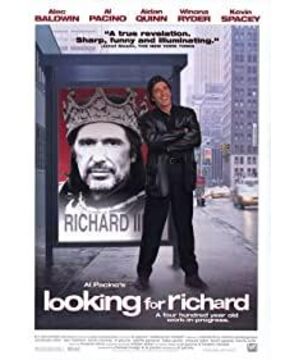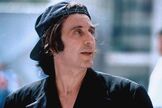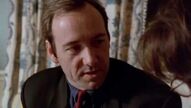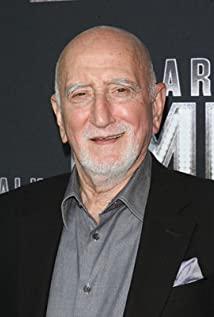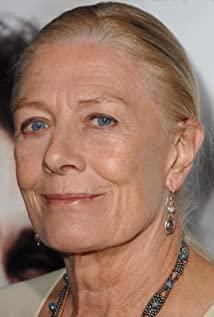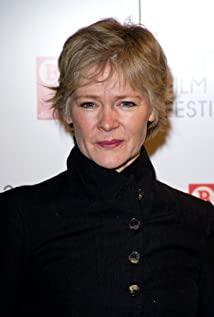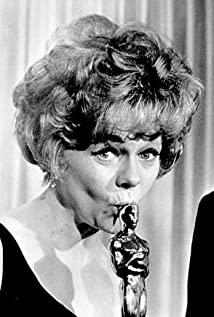Al Pacino's "Finding Richard" is often positioned as a documentary about the rehearsal of Shakespeare's unpopular play "Richard III". In this film, Al Pacino has multiple identities: when he played Richard III himself, he was an actor; when he told why he wanted to make this film, he was a director or producer; when he was discussing and communicating with others , he is a theatre director with limited knowledge of Shakespeare.
The overlapping of these characters and the tight montage reminds me of Japanese director Kim Min's Millennium Actress. In that cartoon, the heroine Chiyoko Hara's memories of her first love in her life are constantly shuttled and intertwined in her films and her life. Whether he still remembered what he looked like, or whether he was long dead. So much so that we hardly know whether some scenes are plots in the film, Chiyoko's imagination, or what actually happened. "Millennium Actress" uses a lot of highly jumping montages in the editing, making Chiyoko constantly travel through various eras, making her miss as if spanning a thousand years. Her position is also dark and vague. Is she acting in a movie, or her life has become a movie, or is she just an actor of Genya Tachibana, the director who made a documentary for him in the movie.
Actors are captivating, or rather fascinated, in this vague role transition. Al Pacino clearly shows greed for different characters. When he talks about the purpose of the film as a producer, he seems to have insight into people's incomprehension of Shakespeare; when he acts as an actor in the castle, his performance is proving to everyone that he understands Shakespeare; A theater director displays a near-absolute control when he communicates with an actor; when he is arguing with a Shakespeare expert, it's as if he's watching from behind the camera - "they don't really understand"; the best What's more, when the documentary filmed him alone off-set, wearing modern clothes, fascinated as Richard III, he incorporated his theatrical performance into his personal life, and at this moment all of the above characters are "Al Pacino". This kind of greed for multiple roles, or for the complete self-expression, is somewhat close to Richard III's greed.
Behind his madness is Richard's low self-esteem since childhood, and his desire to be recognized and surpassed by others is extremely strong. According to Adler's point of view of the individual psychoanalytic school, the driving force of people is inferiority complex, and people with physical defects are more likely to have a mentality of surpassing others, and even gain recognition and get psychological compensation (however, in the ultimate sense, self-recognition is the impossible). Al Pacino entered the film industry as an actor, and this film is said to be his first film with directorship. The director's place in a movie has always been god (although I think that power and emphasis on it is bad), and when an actor's understanding of the character and the director's understanding of the character is strongly inconsistent with the director's, the actor is usually left to succumb. Sometimes, we will also attribute an actor's wonderful performance to the director's good guidance. Other times, we solidify the image of an actor for a role in a famous work (such as Al Pacino in "The Godfather"). For these various limitations or misunderstandings, for an actor with "inferiority", it is a rule and a driving force for transcendence. It is conceivable that in his first directorial film, Al Pacino had multiple considerations and ambitions for the choice of the theme—rehearsal of Shakespeare's plays—and for the exchange of his roles. (Some of his doubts about the film and the director can also be seen in the following description)
Combined with the above "Millennium Actress", what I want to say is that I don't think this film is a (really sense) documentary. At the very least, it is not a documentary "to help understand Shakespeare's plays" that is generally easy to understand; it is not an objective record of the rehearsal process, it also records Al Pacino's ambition to "master", this creative ambition It is somewhat similar to Rodin's fondness for carving "hands", and its core is closer to Fellini's "Eight and a Half". "Finding Richard" is documenting a director in what looks like a documentary.
Interestingly, such a semi-documentary (if the public thinks he is a dramatist), I tend to think it is about the theatrical rehearsal in the shallowest sense, and the director in the final sense; In a more careful and in-depth look, it is actually about the film.
We've only seen the theater about twice in the film, both shortly after the film's beginning, and one of the theaters shows people watching absentmindedly (a couple kissing). There has been no theater since then, and instead the plot interpretations are film performances, with some surrealistic film performances (which are undoubtedly farther from the stage). Theater is an important medium for dramatic performances, and the theater environment affects the audience’s feelings to a large extent; in theaters, most of the audience are far away from the stage, which requires actors to pay more attention to body language, tone of voice, and delicate performance. is difficult to convey; theatre is an infallible, one-time-on-the-spot. In the film, all the complete performances in costumes and props are performed in a non-theater environment that fits the storyline and background. Plenty of close-ups capture the inner transformation of Richard III and the rest of the characters. As Al Pacino said, he hoped that this documentary could help everyone understand this unpopular Shakespeare bureau, so he let the characters in the play be shown in detail in a "stage of the times". In fact, we don't need this kind of performance, we can understand what Shakespeare has to say just by looking at the discussions and explanations in other parts. But the addition of this lively performance and its recording format (which we can clearly recognize is a cinematic approach) certainly makes the audience more interested (it is the beautiful photography that grabs us). As a result, the audience understands Shakespeare's plot, but at the same time it is impossible to understand Shakespeare's play - what the audience sees is a wonderful visual film, and the audience still cannot understand the "language" of the play.
I believe Al Pacino knew the difference between film and theater, and did it on purpose. It's kind of a satire on how drama or Shakespeare is understood today - misunderstood. Under the strong influence of the film industry, whether it is an obscure script or a theater form that is difficult for ordinary people to be interested in, it is difficult for people to accept and understand Richard outside the film (we prefer those adapted, joking, lively and lively). Wonderful Shakespeare, like Lubitsch's "to be or not to be"). He seemed to be making a joke on us: we didn't see the Richard III play, we saw just a movie; except that those who found Richard for us to find him, watched the We still haven't found that Richard at the end of the film
—To find Richard or Shakespeare, we have to rely on ourselves.
View more about Looking for Richard reviews


